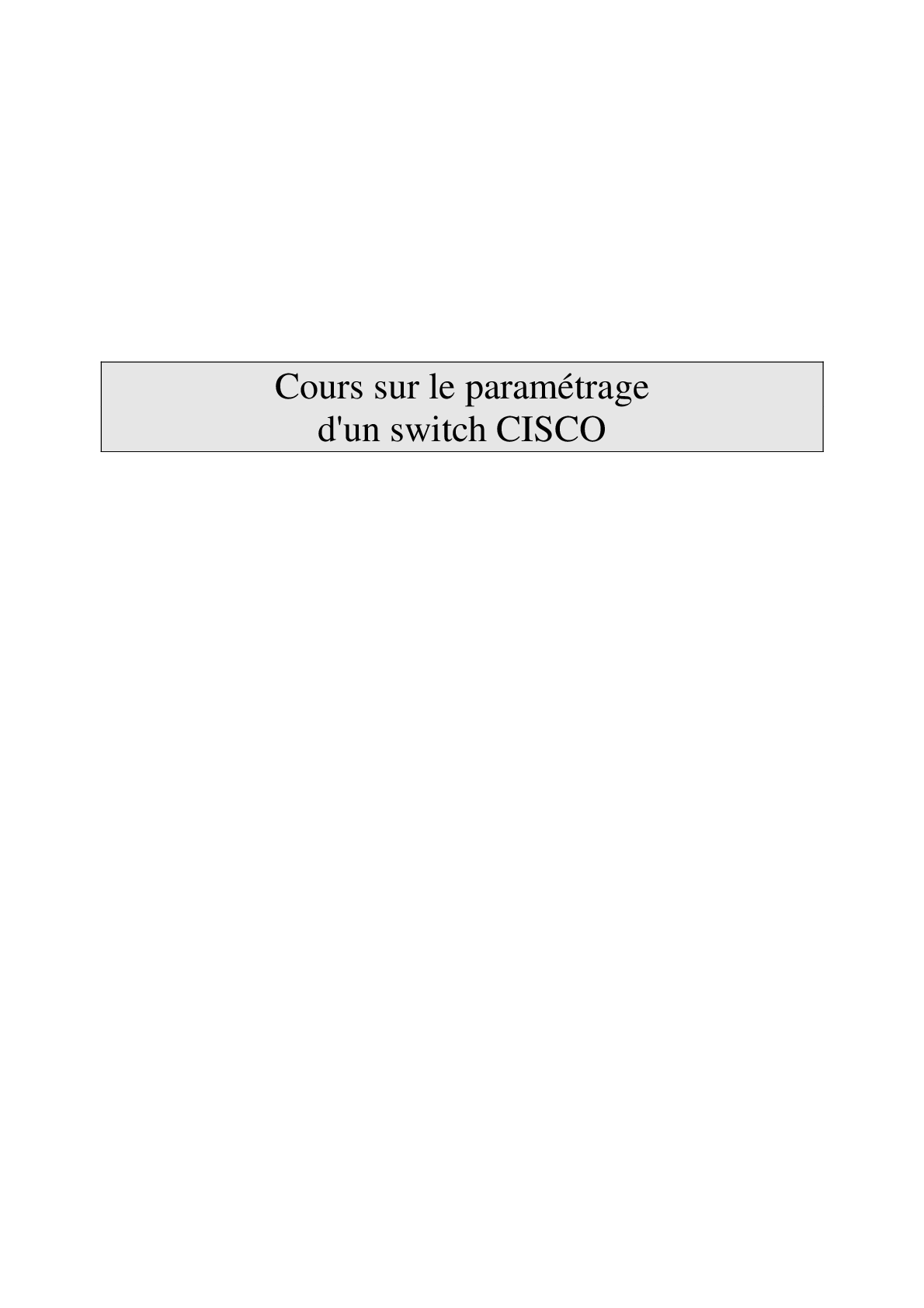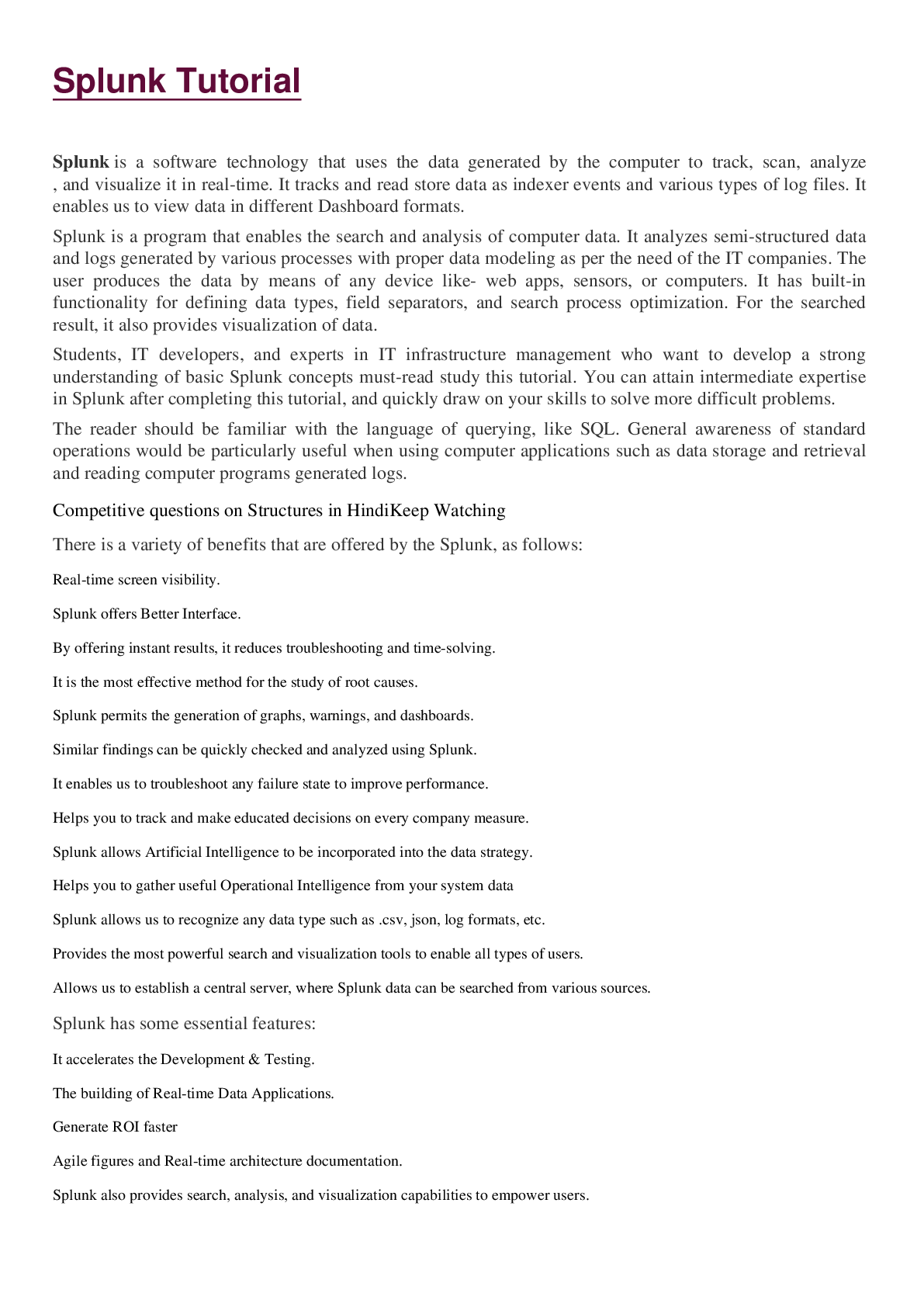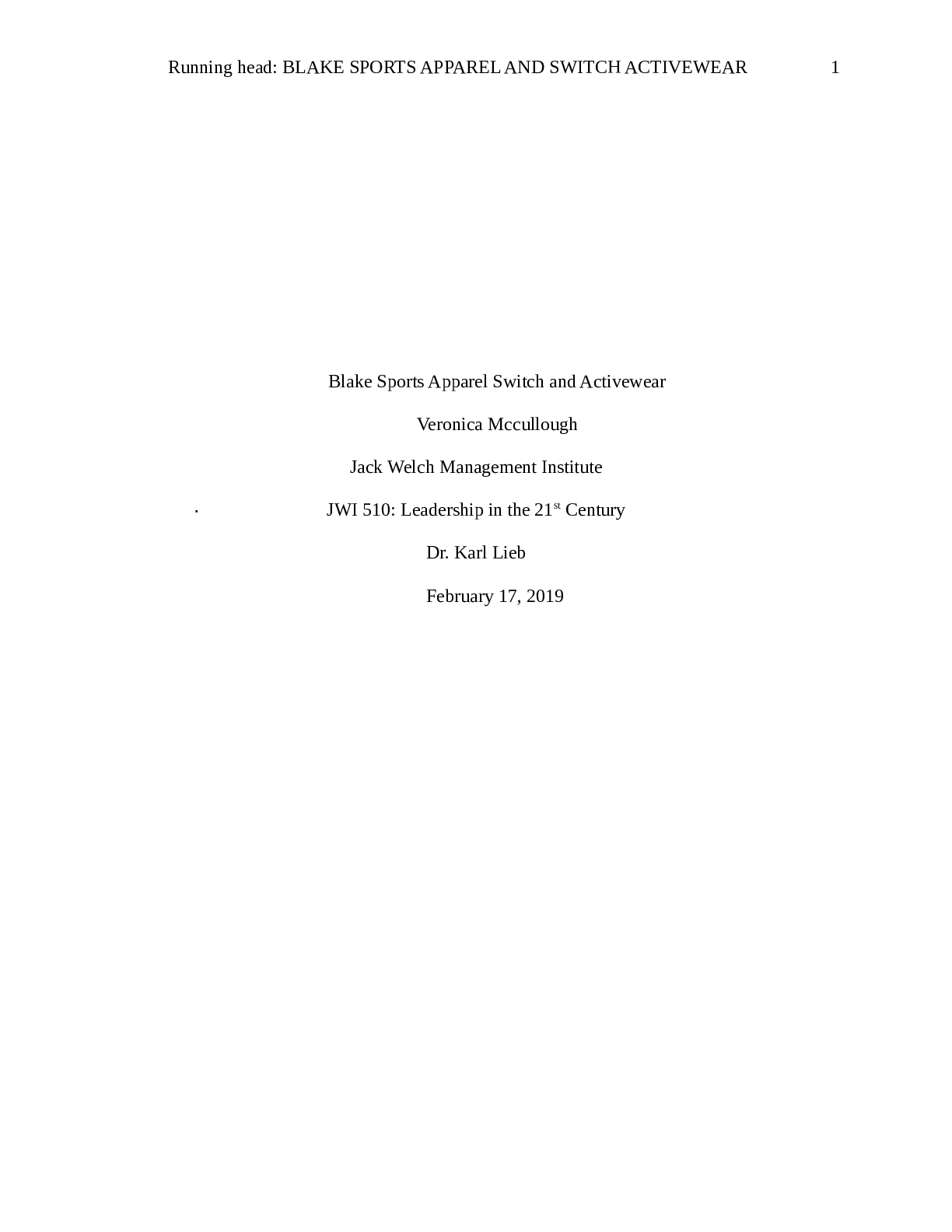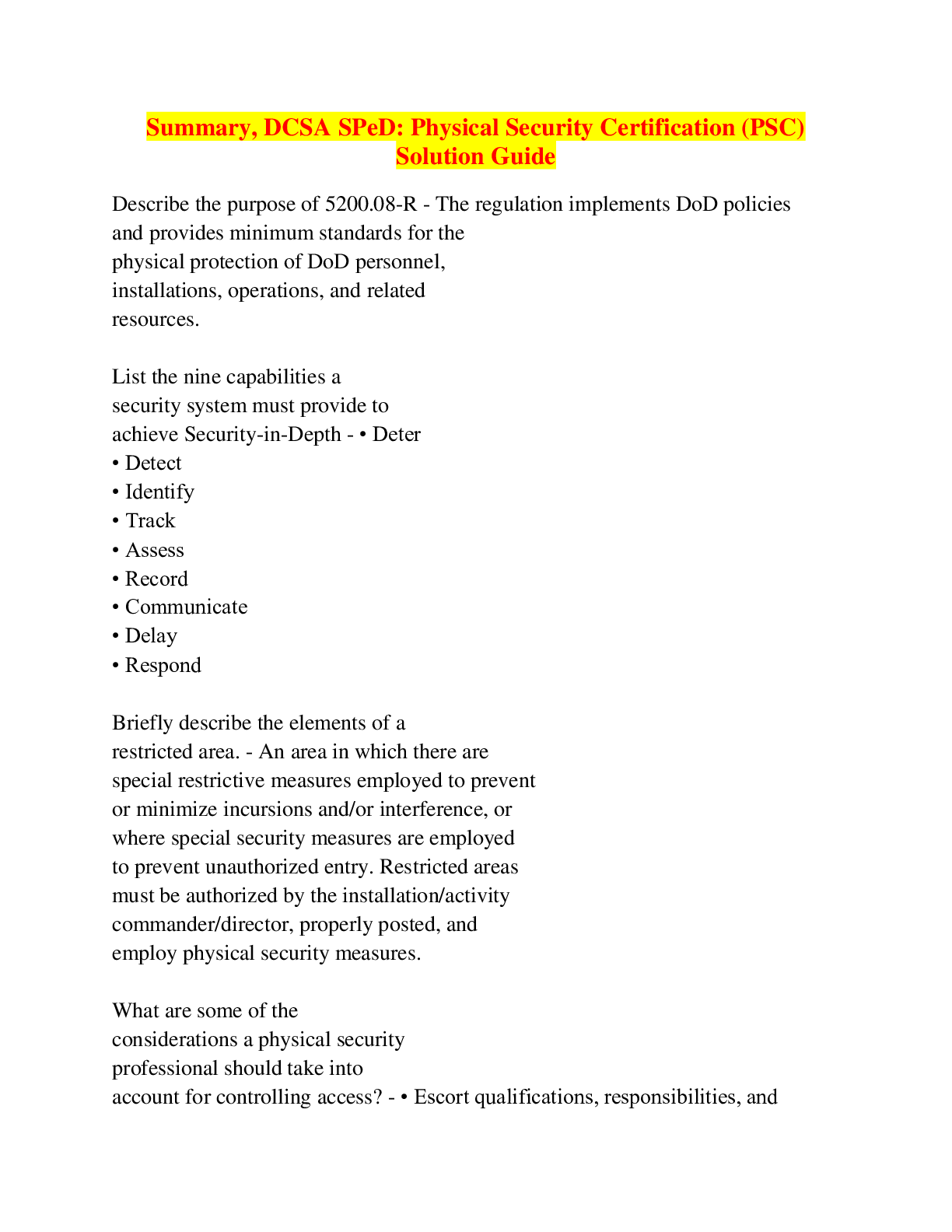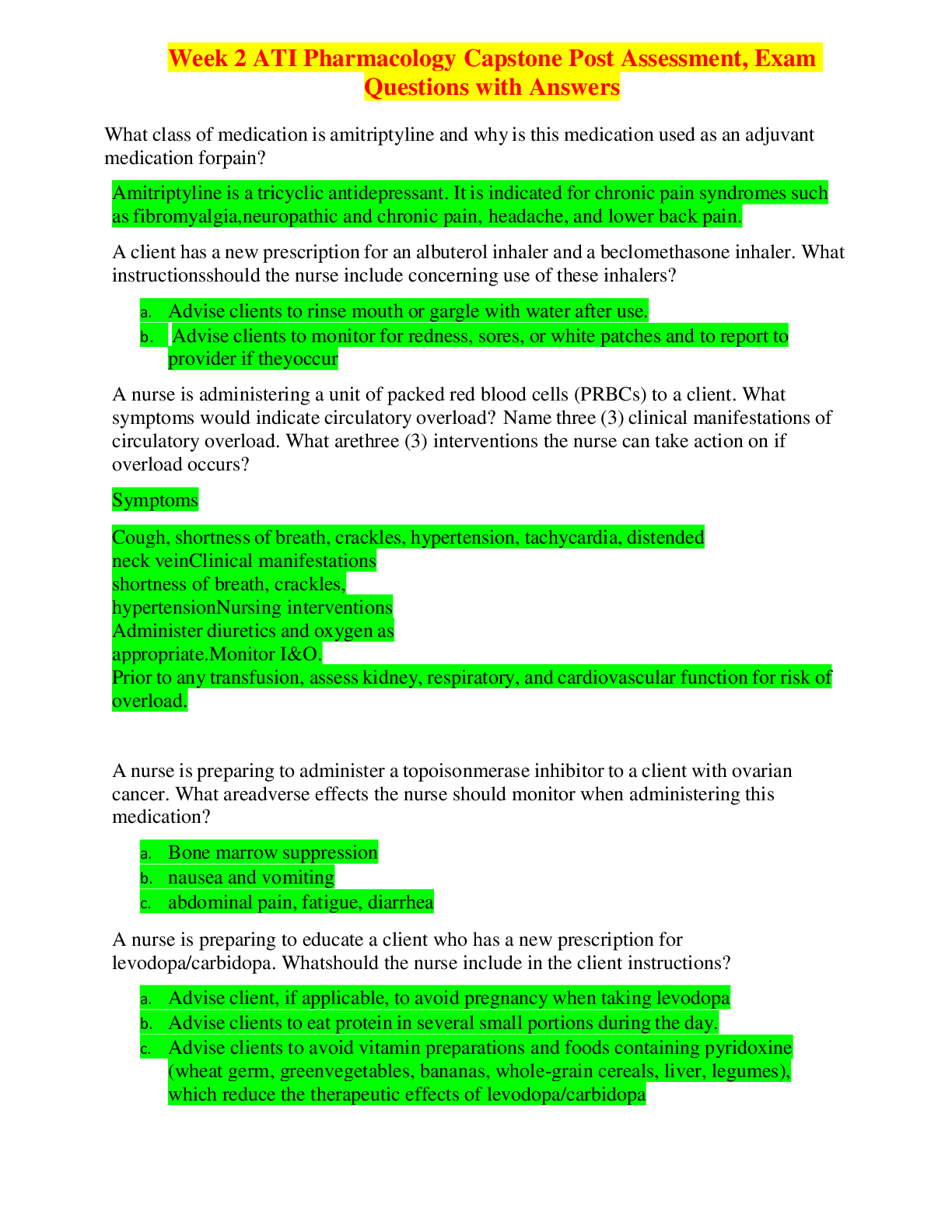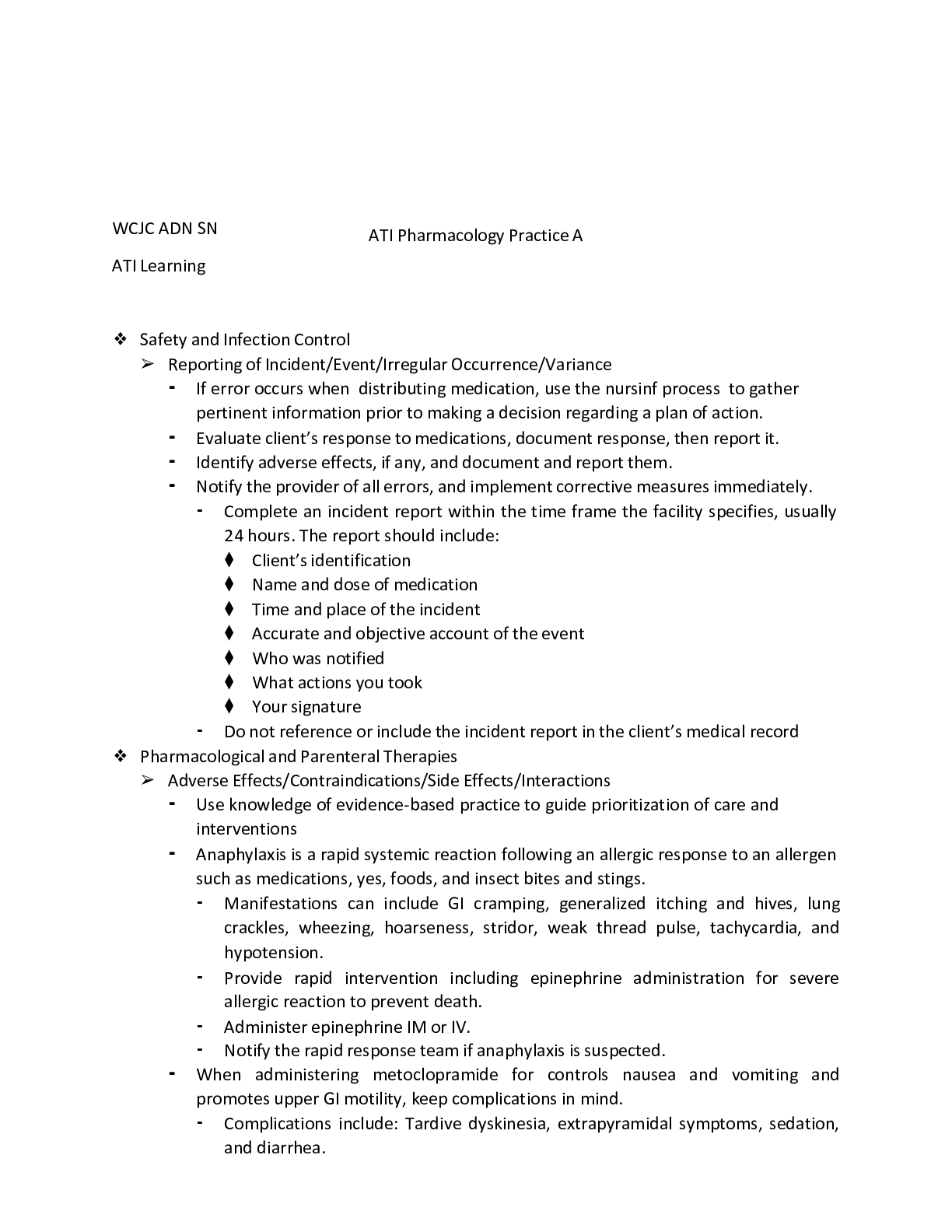Medical Surgical Nursing > Summary > Introduction to Medical Surgical Nursing (All)
Introduction to Medical Surgical Nursing
Document Content and Description Below
Definition and Scope of Medical Surgical Nursing: - Medical surgical nursing is a specialized field of nursing that focuses on providing holistic care to patie nts with various medical and surgical ... conditions. - The scope of medical surgical nursing encompasses the assessment, diagnosis, planning, implementa tion, and evaluation of care for patients in acute care settings such as hospitals, clinics, and ambulatory c are centers. - Medical surgical nurses work closely with interdisciplinary healthcare teams to ensure comprehensive and coordinated care for patients. Reference: Potter, P. A., Perry, A. G., Stockert, P., & Hall, A. (2021). Fundamentals of nursing. Elsevier. B. Role and Responsibilities of a Medical Surgical Nurse: - Medical surgical nurses play a crucial role in providing direct patient care and ensuring patient safety t hroughout the healthcare continuum. - Their responsibilities include performing comprehensive assessments, developing and implementing c are plans, administering medications, monitoring vital signs, and providing patient education. - They collaborate with other healthcare professionals, such as physicians, pharmacists, and physical th erapists, to deliver effective and coordinated care. - Medical surgical nurses also act as advocates for their patients, promoting their rights, dignity, and ove rall well-being. Reference: Lewis, S. M., Dirksen, S. R., Heitkemper, M. M., Bucher, L., & Harding, M. (2021). Medical-surgical nurs ing: Assessment and management of clinical problems. Elsevier. C. Overview of the Nursing Process in Medical Surgical Care: - The nursing process is a systematic framework that guides medical surgical nurses in providing individ ualized care to patients. - It involves five steps: assessment, diagnosis, planning, implementation, and evaluation. - Assessment: Gathering comprehensive data about the patient’s health status, including physical, psyc hological, and socio-cultural aspects. - Diagnosis: Analyzing the assessment data to identify the patient’s actual or potential health problems. - Planning: Developing goals and care plans based on the identified diagnoses, considering the patient’ s preferences, resources, and healthcare priorities. - Implementation: Carrying out the planned interventions, which may include direct patient care, medicat ion administration, wound dressing changes, and patient education. - Evaluation: Assessing the effectiveness of the interventions and modifying the care plan as needed to promote positive patient outcomes. Reference: Black, J. M., & Hawks, J. H. (2020). Medical-surgical nursing: Clinical management for positive outcome s. Elsevier. Note: The provided references are general textbooks widely used in nursing education. For more specific and detailed information, please refer to the recommended readings and resources provided by your instr uctor at Brock University. [Show More]
Last updated: 2 years ago
Preview 1 out of 23 pages
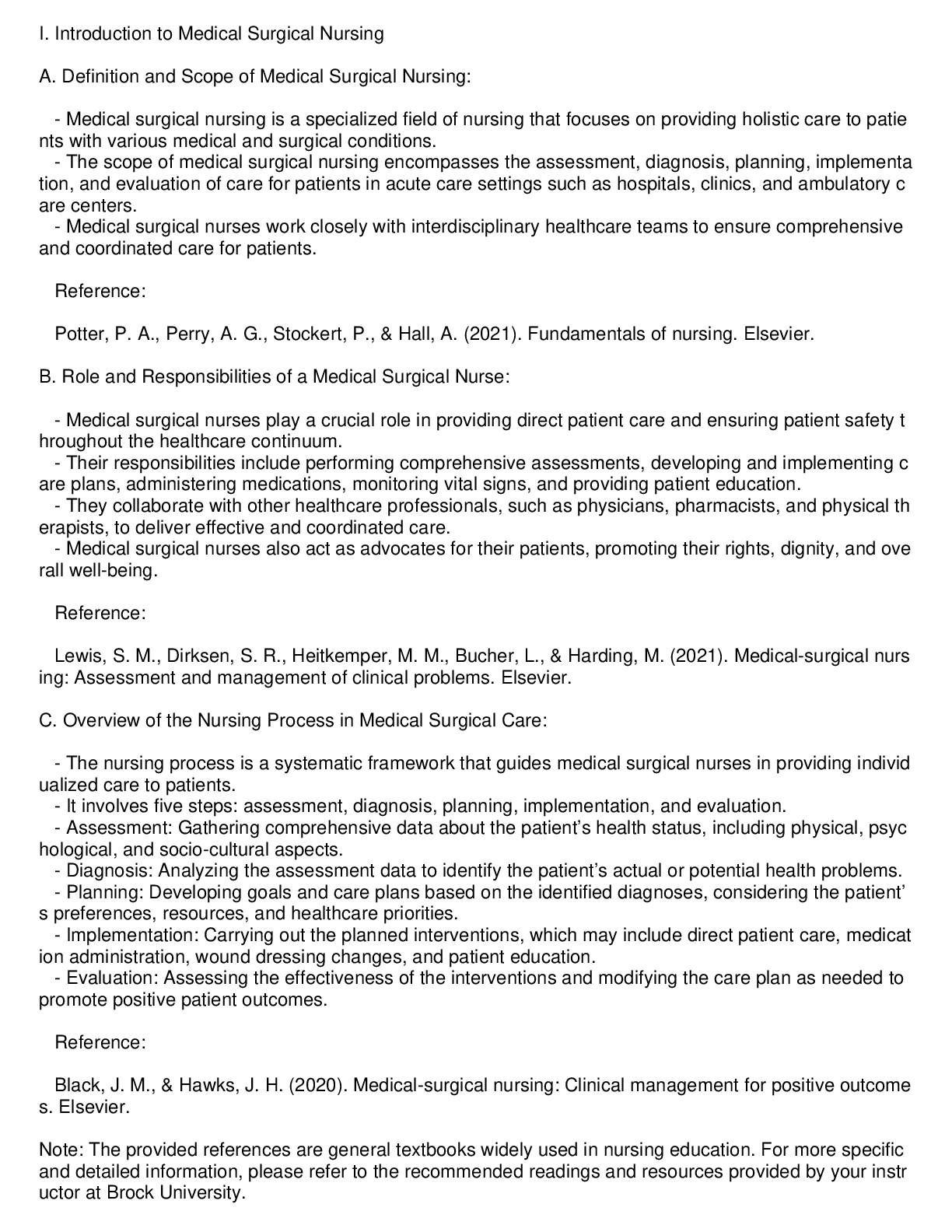
Buy this document to get the full access instantly
Instant Download Access after purchase
Buy NowInstant download
We Accept:

Also available in bundle (1)
Click Below to Access Bundle(s)

NGN RN ATI/ARCHER/ NGN PHARMACOLOGY /NCLECX -RN /NCLEX -PN/NCLEX-RN SAUNDERS /NCLEX NGN /NGN NCLEX COMPREHENSIVE/BSN / SIMPLE NURSING EXANS WITH 100 %VERIFIED ANSWERS AND SOLUTION
NGN RN ATI/ARCHER/ NGN PHARMACOLOGY /NCLECX -RN /NCLEX -PN/NCLEX-RN SAUNDERS /NCLEX NGN /NGN NCLEX COMPREHENSIVE/BSN / SIMPLE NURSING EXANS WITH 100 %VERIFIED ANSWERS AND SOLUTION
By EXCELLENCE NURSING LIBRARY 2 years ago
$608
49
Reviews( 0 )
$10.50
Can't find what you want? Try our AI powered Search
Document information
Connected school, study & course
About the document
Uploaded On
Nov 24, 2023
Number of pages
23
Written in
All
Additional information
This document has been written for:
Uploaded
Nov 24, 2023
Downloads
0
Views
126


